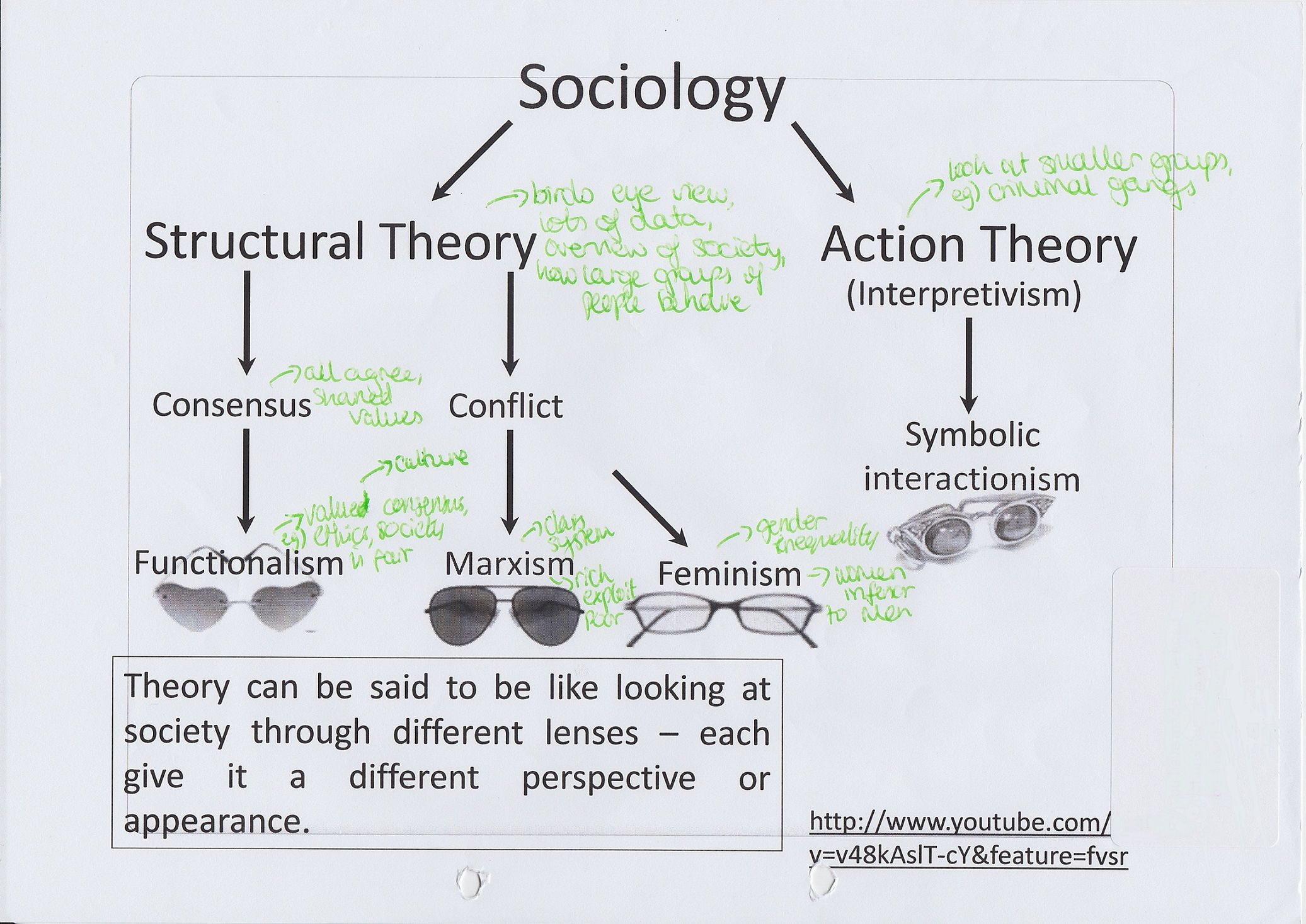Have you ever wondered why some people seem destined to live in luxury while others struggle to survive? Why some countries are affluent while others languish in poverty? These are questions that have plagued societies for centuries, and Karl Marx, the 19th-century philosopher and social scientist, offered a powerful framework for understanding these stark inequalities.
:max_bytes(150000):strip_icc()/conflict-theory-Final-66da57019fd84b9e906d0a6114cb79a8.png)
Image: polfvacations.weebly.com
Marx’s sociological perspective, often referred to as **historical materialism**, is a cornerstone of critical social theory. It posits that the engine of history is driven by the struggle between economic classes and the evolution of modes of production. Understanding Marx’s ideas is crucial for grappling with the complexities of class, inequality, and the dynamics of power in contemporary society.
Key Concepts: Illuminating the Marxian Framework
1. Materialist Conception of History:
Marx rejected the notion that ideas or values were the primary movers of history. Instead, he argued that **material conditions**, particularly the means of production (e.g., tools, technology, land) and the relations of production (e.g., who owns the means, who works them), shape the course of history. He saw these material conditions as the foundation upon which social structures, ideologies, and even human consciousness are built.
Think of it this way: imagine a society dependent on farming. The tools used – simple hand tools versus advanced machinery – determine who has power, who gets to eat, and how society is organized. This demonstrates how the mode of production shapes nearly every aspect of human life.
2. Class Struggle: The Engine of History:
Marx identified two fundamental classes within capitalist societies: the **bourgeoisie**, those who own the means of production and profit from the labor of others, and the **proletariat**, the working class who sell their labor power to survive. The core of Marx’s theory is that a fundamental conflict exists between these classes due to their competing interests.
The bourgeoisie, driven by the insatiable pursuit of profit, exploits the proletariat by appropriating surplus value—the difference between what workers produce and what they are paid. This exploitation fuels the tension between the classes, creating the potential for social upheaval. This tension, Marx argued, is the driving force of historical change.

Image: www.goconqr.com
3. Alienation: The Human Cost of Capitalism:
Marx believed that capitalism alienates workers from their labor, their fellow workers, and their own human potential. Workers are separated from the creative and satisfying aspects of production, reducing them to cogs in a machine. In a capitalist system, the worker becomes estranged from their true nature.
Imagine a craftsman who meticulously builds a beautiful piece of furniture. Under capitalism, this fulfilling work might be replaced by repetitive, monotonous tasks on an assembly line. This alienation, Marx argued, leads to psychological distress and serves as a catalyst for revolution.
From Theory to Reality: Applying Marx’s Perspective
Marx’s insights have informed a wealth of real-world analysis and activism. Here are some key areas where his ideas prove relevant:
1. Labor Movements and Worker Rights:
Marx’s theory gave philosophical grounding to the labor movement. It provided a framework for understanding the exploitation of workers and the need for collective action to achieve better working conditions, wages, and benefits. From unionization efforts to worker co-operatives, Marx’s focus on class struggle has been a driving force in the fight for workers’ rights.
2. Global Inequality and Development:
Marx’s theory helps explain the widening gap between rich and poor nations. The exploitation of cheap labor in developing countries by multinational corporations, often fueled by a race to the bottom for profits, highlights the global power imbalances driven by capitalist accumulation. This understanding of global inequalities has informed international organizations, NGOs, and social movements working towards sustainable development and global justice.
3. Political Economy and Economic Crisis:
Marx’s theory of capitalism’s inherent contradictions has contributed to understanding economic crises. The cyclical nature of economic booms and busts, marked by overproduction, market failures, and worker displacement, can be traced back to the exploitative nature of the capitalist system. This analysis has informed economists and policymakers attempting to regulate markets and mitigate economic instability.
Beyond Capitalism: Critiques and Future Directions
Despite its enduring influence, Marx’s theory has also been subjected to criticism. Some argue that his focus on class struggle overlooks other forms of inequality and oppression, such as those based on race, gender, or sexual orientation. Others contend that his predictions of a revolutionary overthrow of capitalism haven’t materialized in many parts of the world.
While Marx’s theory can’t fully capture the complex realities of modern society, his core ideas remain valuable. They provide a lens for understanding the root causes of inequality, the dynamics of power, and the urgent need for social and economic justice. Contemporary social movements, from Occupy Wall Street to Black Lives Matter, engage with Marx’s insights to mobilize for radical change.
Karl Marx Sociological Perspective
Conclusion: A Legacy of Critical Thinking
Karl Marx’s sociological perspective, though developed over a century ago, continues to provide a powerful and relevant framework for understanding our complex world. His ideas encourage us to challenge the status quo, question economic power structures, and advocate for a more equitable and just society. Whether you agree with all of Marx’s conclusions or not, his work compels us to think critically about the social and economic forces that shape our lives and the possibilities for transforming them.
To further explore Marx’s ideas, delve into seminal texts like the “Communist Manifesto” and “Capital.” There are also countless scholarly articles and books available that engage with his work in contemporary contexts. So, what are you waiting for? Get reading and join the ongoing conversation about the future of capitalism, social justice, and the possibility of a more equitable world.

:max_bytes(150000):strip_icc()/OrangeGloEverydayHardwoodFloorCleaner22oz-5a95a4dd04d1cf0037cbd59c.jpeg?w=740&resize=740,414&ssl=1)




